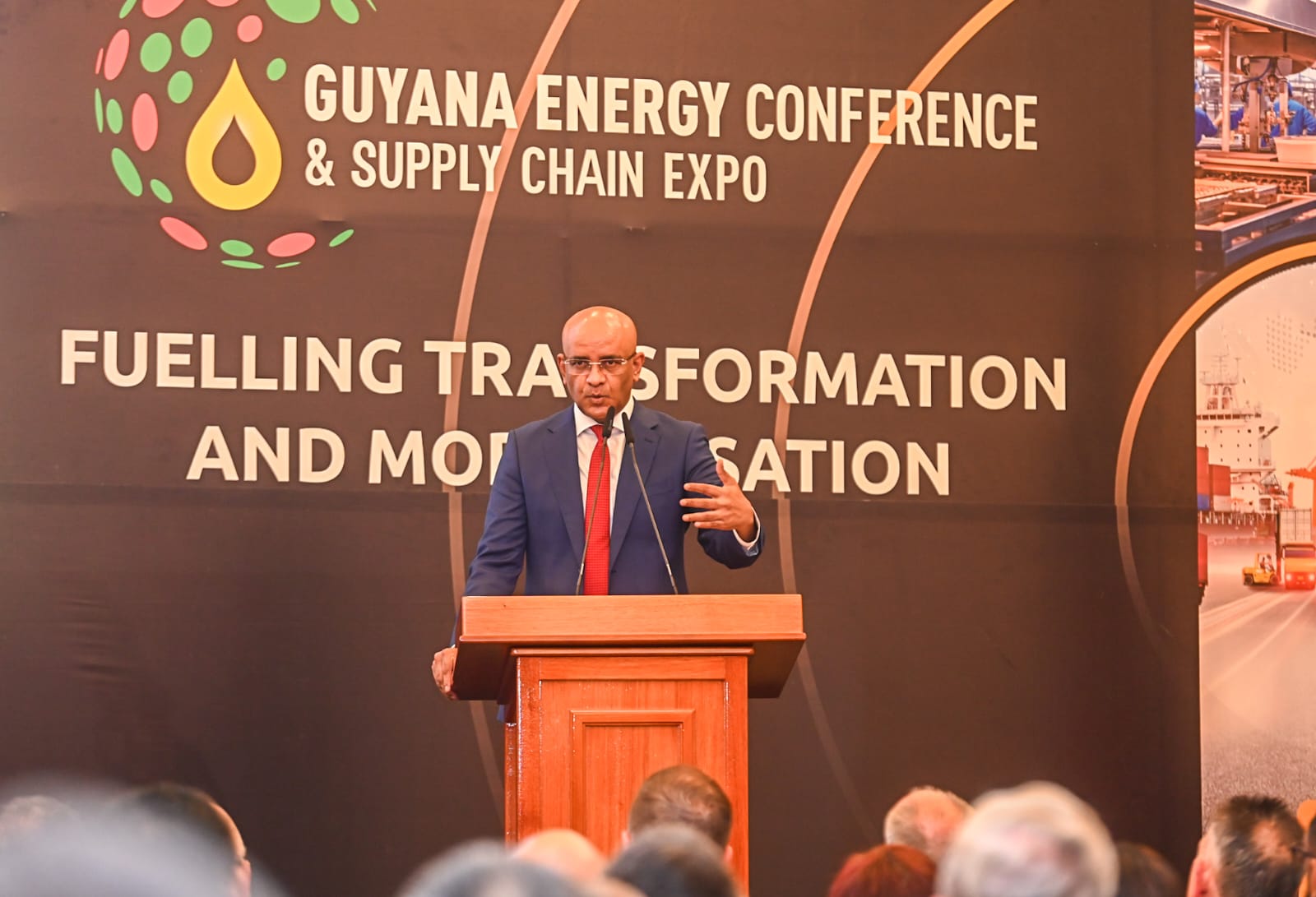Executives of the world’s foremost fossil-fuel giants recently poured cold water on the slothful energy transition movement, deeming it a fantasy to be abandoned. Despite such a position being shared by Amin Nasser, Chief Executive Officer (CEO) of Saudi Aramco as well as Meg O’Neill of Woodside, Guyanese authorities are insisting that the world must stay the course of moving to cleaner energy sources. This much was staunchly advocated by the Vice President and chief policymaker for the oil sector, Bharrat Jagdeo.
During a press engagement this week, the Vice President said he does not agree with the viewpoint expressed by those energy bosses during the CERAWeek Conference in Houston, Texas.
The energy transition era still in full swing or waning? | OilNOW
Jagdeo said it is clear that the energy transition is failing, that it is not taking place at the pace it should, consistent with the targets of the United Nations Framework Convention on Climate Change (UNFCCC). “This is largely because of the failure to do a number of things, one being the introduction of a carbon price that sends a strong signal that you would have to pay for the externalities associated with fossil fuel production,” said Jagdeo. He added, “Because that is not there, the incentive to put resources at scale and invest those resources in renewable energy is not happening.”
Another key pillar of Guyana’s position, he said, is the need to phase out the use of coal for energy. He said it is incumbent on nations such as the United Kingdom to do this as it has been “opening new coal mines.”
With return of coal-fired power, natural gas more important now than ever | OilNOW
Overall, the Vice President said leading nations and industry stakeholders must do everything within their power to ensure the energy transition movement realizes its objective, which is to ultimately save an overheating planet.
“So, it might be a fact that the energy transition is failing but it doesn’t [mean] that we must abandon our plans to phase down the use of fossil fuel,” the official said.
A 2023 Net Zero Roadmap report by the International Energy Agency (IEA) also underscores the importance of the energy transition movement.
Hess’ carbon credits could ‘offset’ Stabroek Block emissions for a decade | OilNOW
The report stresses that stronger international cooperation is critical to limiting global warming to 1.5°C. It warns that a failure to step up ambition and implementation between now and 2030 sufficiently would create additional climate risks and make achieving the 1.5°C goal dependent on the massive deployment of carbon removal technologies, which are expensive and unproven at scale.
In a Delayed Action Case that the report examines, a failure to expand clean energy quickly enough by 2030 means nearly 5 billion tonnes of carbon dioxide would have to be removed from the atmosphere annually during the second half of this century. If carbon removal technologies fail to deliver at such scale, returning the temperature to 1.5°C would not be possible.




